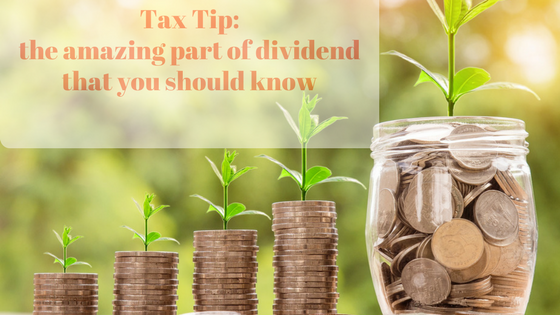A dividend is simply a distribution of a portion of a company’s after-tax earnings. Dividends can be issued in various forms, cash payments, as shares of stock, or other property. But today, we talk about the basic cash dividend only.
Do you know the amazing part of dividend received?
From personal tax perspective
If your spouse has little or no income except for taxable dividends from Canadian corporations, particularly one of the spouse still studies at school, then you can make an election to include his or her dividends in your income. By this way, you are able to reduce family’s tax payable through utilizing the available dividend tax credit and spousal tax credit. One thing that you need to keep in mind is that the election must apply to all of your spouse’s dividends from taxable Canadian corporations. No partially or cherry-picking.
In case that the spouse incurred investment related interest expense in order to earn the taxable dividends, that deductible portion of interest expense cannot be transferred to you. It may be used to reduce other source of income.
From corporation perspective
In general, most small and medium-sized businesses in Canada are Canadian-controlled private corporation (CCPC). They can pay two types of dividends: either eligible dividend or ineligible dividend.
Simply speaking, dividends categorized as eligible dividends are due to the related taxable income that has not enjoyed the favorable tax rates as CCPCs. In contrast, ineligible dividend mainly comes from the pool that the related taxable income that has benefited from low business tax rates as CCPCs. You may question that why dividend received from public companies are designated as eligible dividend from T slips. Yes, that is the exception for public companies. The dividends will keep the same designation when they flow through a corporation. Another exception is that non-CCPC corporations that are resident in Canada can pay eligible dividends without restriction.
So, what is the beauty of receiving dividend from the corporation then? If you, the owner-manager of a CCPC have no other sources of income, you can receive a significant amount of Canadian dividend income and pay little or no tax. For example, if you receive $17,094 ineligible dividend from your corporation, the tax payable is nil. At the level, you don’t even need to pay EHT assuming you are an Ontario resident at the end of the year.
What do you think?

Recent Comments